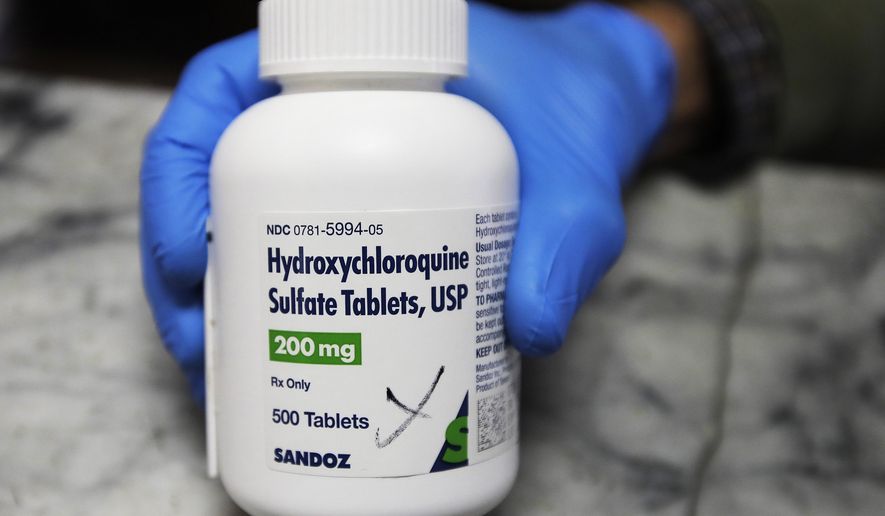The editors of The Lancet, a London-based journal renowned for accurate medical research, are disclosing “serious scientific questions” about a paper they published May 22 knocking the use of the Trump-endorsed hydroxychloroquine to treat COVID-19.
The now-disputed research paper relied on the examination of hospital files for nearly 100,000 patients to conclude that the drug, in combination an antibiotic, is ineffective and can cause heart problems. More than 14,000 patients were given the drug, with or without, an antibiotic in 671 hospitals on six continents from December to April.
Over 100 scientists quickly challenged the study’s methods, writing to The Lancet that in some cases medical records did not match the actual patient.
President Trump has championed hydroxychloroquine, bringing with it intense criticism from the liberal media — and a Fox News anchor — who painted the anti-malaria drug as dangerous. Mr. Trump disclosed he took a regimen of the drug as a preventative for the new coronavirus that causes the COVID-19 disease.
A number of U.S. physicians have come forward to say they have seen success in the prescribing hydroxychloroquine to COVID patients. Backers say hydroxychloroquine has been used safely for 60 years to prevent and treat malaria by blocking parasites from invading red blood cells. Its anti-inflammatory properties have been proven effective in treating Lupus and some skin diseases.
The Food and Drug Administration is one of many agencies and institutes conducting clinical trials.
The May 22 Lancet article contained this conclusion:
“We were unable to confirm a benefit of hydroxychloroquine or chloroquine, when used alone or with a macrolide, on in-hospital outcomes for COVID-19. Each of these drug regimens was associated with decreased in-hospital survival and an increased frequency of ventricular arrhythmias when used for treatment of COVID-19.”
The report gained widespread news media coverage. Often missed was the study’s warning:
“A cause-and-effect relationship between drug therapy and survival should not be inferred. These data do not apply to the use of any treatment regimen used in the ambulatory, out-of-hospital setting. Randomized clinical trials will be required before any conclusion can be reached regarding benefit or harm of these agents in COVID-19 patients.”
The Lancet editor’s backtrack posted on Wednesday said that “important scientific questions have been raised about data in the paper. … We are issuing an Expression of Concern to alert readers to the fact that serious scientific questions have been brought to our attention. We will update this notice as soon as we have further information.”
The article carried the bylines of four scientists at medical centers in the U.S. Data was analyzed by the firm Surgisphere in Chicago.
A French clinic in southern France has conducted trials that show hydroxychloroquine is effective in treating COVID-19.
• Rowan Scarborough can be reached at rscarborough@washingtontimes.com.




Please read our comment policy before commenting.